- Clone
- HTA28 (See other available formats)
- Regulatory Status
- RUO
- Other Names
- Histone-H3
- Isotype
- Rat IgG2a, κ
- Ave. Rating
- Submit a Review
- Product Citations
- publications
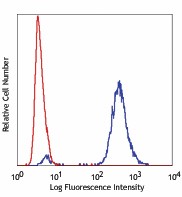
-

Nocodazole-treated Hela cells intracellularly stained with HTA28 Alexa Fluor® 488
| Cat # | Size | Price | Quantity Check Availability | Save | ||
|---|---|---|---|---|---|---|
| 641003 | 25 tests | £97 | ||||
H3 is a core component of the nucleosome that serves to wrap and compact DNA into chromatin. Histones therefore, limit the accessibility of DNA, providing mechanisms for transcription regulation, DNA repair and replication and chromosomal stability. During mitosis, H3 is phosphorylated at serine 28.This phosphorylation coincides with chromosome condensation initiated at prophase and disappears at late anaphase. H3 has been demonstrated to be phosphorylated by the action of MLTK-α (mixed linage kinase-like mitogen activated protein triple kinase α) in response to ultraviolet B light and epidermal growth factor, as well as Aurora-B during mitosis.
Product DetailsProduct Details
- Verified Reactivity
- Human
- Antibody Type
- Monoclonal
- Host Species
- Rat
- Immunogen
- Synthetic peptide conjugated to KLH, corresponding to amino acids 23-35 of human histone H3.
- Formulation
- Phosphate-buffered solution, pH 7.2, containing 0.09% sodium azide and BSA (origin USA)
- Preparation
- The antibody was purified by affinity chromatography and conjugated with Alexa Fluor® 488 under optimal conditions.
- Concentration
- Lot-specific (to obtain lot-specific concentration and expiration, please enter the lot number in our Certificate of Analysis online tool.)
- Storage & Handling
- The antibody solution should be stored undiluted between 2°C and 8°C, and protected from prolonged exposure to light. Do not freeze.
- Application
-
ICFC - Quality tested
- Recommended Usage
-
Each lot of this antibody is quality control tested by immunofluorescent intracellular staining with flow cytometric analysis. Please follow the Cell Fixation and Permeabilization Protocol Using 70% Ethanol. For flow cytometric staining, the suggested use of this reagent is 5 µl per million cells in 100 µl staining volume or 5 µl per 100 µl of whole blood.
* Alexa Fluor® 488 has a maximum emission of 519 nm when it is excited at 488 nm.
Alexa Fluor® and Pacific Blue™ are trademarks of Life Technologies Corporation.
View full statement regarding label licenses - Excitation Laser
-
Blue Laser (488 nm)
- Application Notes
-
This clone is not recommended for ChIP (Chromatin Immunoprecipitation) assays (as determined by in-house testing).
-
Application References
(PubMed link indicates BioLegend citation) -
- Hirata A, et al. 2004. J. Histochem. Cytochem. 52:1503.
- Goto H, et al. 1999. J. Biol. Chem. 274:25543.
- Ozawa K. 2008. Cytometry A 73:517.
- Goode NJ, et al. 2014. PLoS Genet. 10:1004323. PubMed
- Product Citations
-
- RRID
-
AB_1279417 (BioLegend Cat. No. 641003)
Antigen Details
- Structure
- H3 is part of the nucleosome, comprised of an octameric complex with H2A, H2B, and H4 proteins.
- Distribution
-
Nucleus
- Function
- H3 is a core component of the nucleosome that serves to wrap and compact DNA into chromatin. Histones therefore, limit the accessibility of DNA, providing mechanisms for transcription regulation, DNA repair and replication and chromosomal stability.
- Interaction
- Two molecules of H3 form a heterotetramer with two molecules of H4.
- Biology Area
- Cell Biology, DNA Repair/Replication, Transcription Factors
- Molecular Family
- Phospho-Proteins
- Antigen References
-
1. Choi HS, et al. 2005. J. Biol. Chem. 280:13545.
2. Goto H, et al. 2002. Genes Cells 7:11.
3. Garcia BA, et al. 2005. Biochemistry 44:13202. - Regulation
- H3 is regulated by acetylation, methylation, citrullination, phosphorylation, and ubiquitination.
- Gene ID
- 8290 View all products for this Gene ID
- UniProt
- View information about Histone on UniProt.org
Related Pages & Pathways
Pages
Other Formats
View All Histone Reagents Request Custom Conjugation| Description | Clone | Applications |
|---|---|---|
| Purified anti-Histone H3-Phosphorylated (Ser28) | HTA28 | WB,CyTOF®,ICC,IP,ICFC |
| Alexa Fluor® 488 anti-Histone H3-Phosphorylated (Ser28) | HTA28 | ICFC |
| Alexa Fluor® 647 anti-Histone H3-Phosphorylated (Ser28) | HTA28 | ICFC |
| Purified anti-Histone H3-Phosphorylated (Ser28) (Maxpar® Ready) | HTA28 | WB,CyTOF® |
| PE anti-Histone H3-Phosphorylated (Ser28) | HTA28 | ICFC |
| PE/Cyanine7 anti-Histone H3-Phosphorylated (Ser28) | HTA28 | ICFC |
Customers Also Purchased
Compare Data Across All Formats
This data display is provided for general comparisons between formats.
Your actual data may vary due to variations in samples, target cells, instruments and their settings, staining conditions, and other factors.
If you need assistance with selecting the best format contact our expert technical support team.
-
Purified anti-Histone H3-Phosphorylated (Ser28)
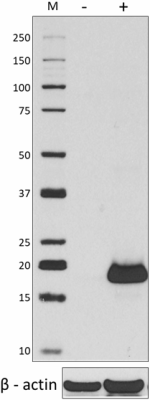
Whole cell extracts (15 µg protein) from untreated (-) or no... 
HeLa cells were fixed with 4% paraformaldehyde (PFA) for 15... 
Untreated HeLa (Panel A) and overnight nocodazoled-treated H... -
Alexa Fluor® 488 anti-Histone H3-Phosphorylated (Ser28)
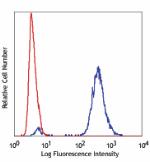
Nocodazole-treated Hela cells intracellularly stained with H... -
Alexa Fluor® 647 anti-Histone H3-Phosphorylated (Ser28)
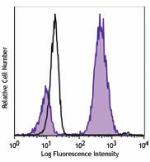
HELA cells (open histogram) and HELA cells treated with Noco... -
Purified anti-Histone H3-Phosphorylated (Ser28) (Maxpar® Ready)
-
PE anti-Histone H3-Phosphorylated (Ser28)
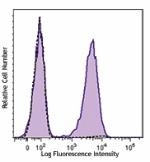
HeLa cells (open histogram) and HeLa cells treated with Noco... -
PE/Cyanine7 anti-Histone H3-Phosphorylated (Ser28)
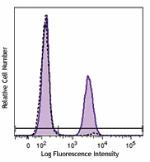
HeLa cells (open histogram) and HeLa cells treated with Noco...
 Login / Register
Login / Register 









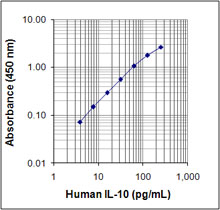
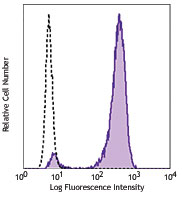
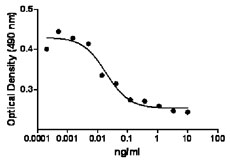
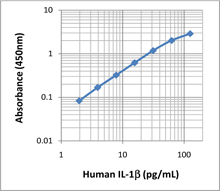



Follow Us